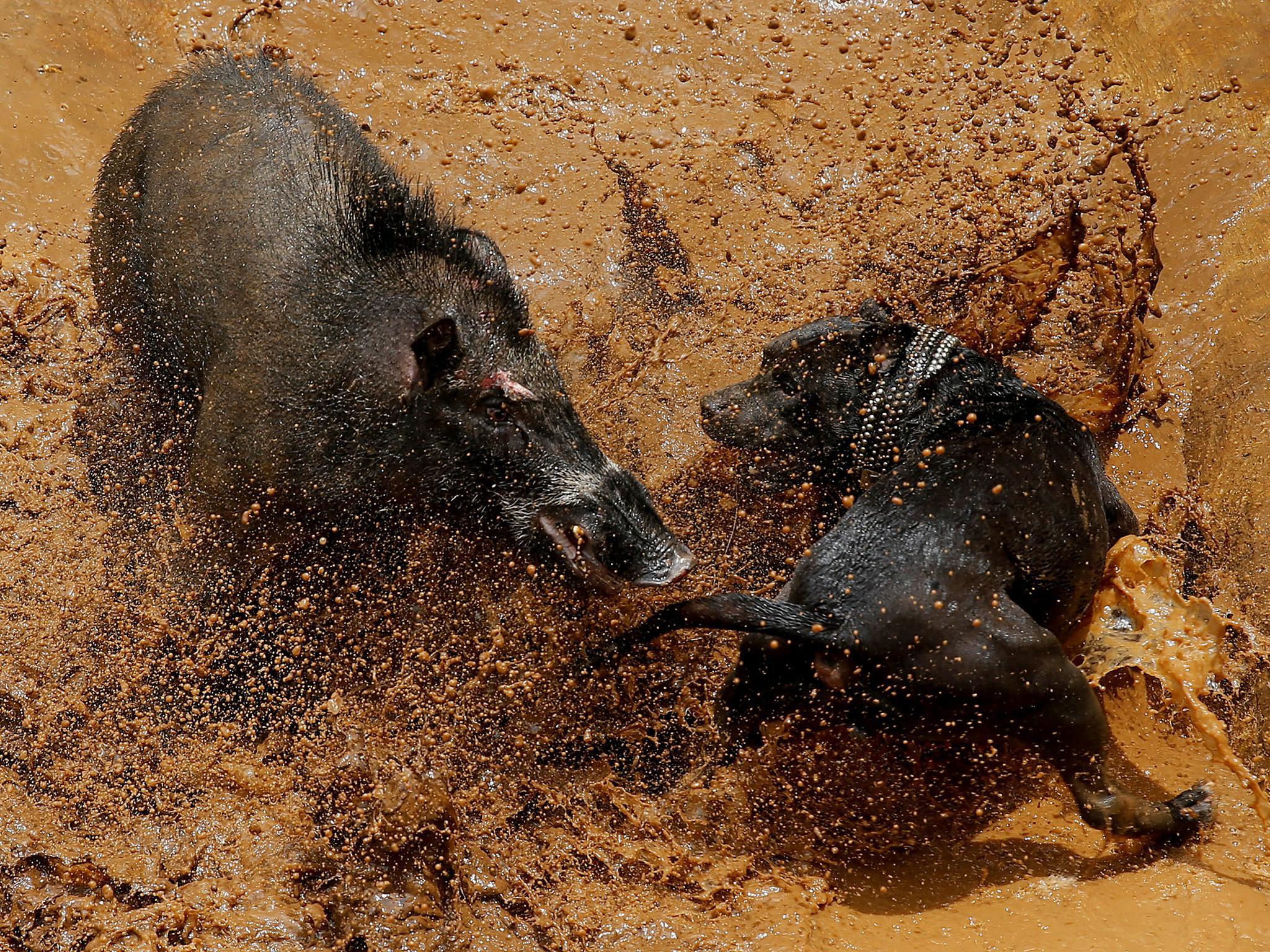Indonesian villages pit wild boars against dogs
Participants say the fights are a way to preserve a tradition of hunting in the area. Not surprisingly, animal rights activists are up in arms against the regular spectacle

Your support helps us to tell the story
From reproductive rights to climate change to Big Tech, The Independent is on the ground when the story is developing. Whether it's investigating the financials of Elon Musk's pro-Trump PAC or producing our latest documentary, 'The A Word', which shines a light on the American women fighting for reproductive rights, we know how important it is to parse out the facts from the messaging.
At such a critical moment in US history, we need reporters on the ground. Your donation allows us to keep sending journalists to speak to both sides of the story.
The Independent is trusted by Americans across the entire political spectrum. And unlike many other quality news outlets, we choose not to lock Americans out of our reporting and analysis with paywalls. We believe quality journalism should be available to everyone, paid for by those who can afford it.
Your support makes all the difference.A gory fight to the death between snarling dogs and captured wild boars.
Gathered around a bamboo-walled arena, Indonesians in this remote part of Java island seem eager to watch the bloodcurdling contests, known locally as “adu bagong” (boar fighting).
Not surprisingly, animal rights activists are up in arms against the regular spectacle, which began in the 1960s when wild pig numbers in this area in West Java soared and they were hunted to protect crops.
Participants say the fights are a way to preserve a tradition of hunting in the area. There’s also a cash prize of up to $2,000 (£1,500) for the winning dog.
“It used to be very simple, not like now when the dogs are trained,” says Nur Hadi, head of Hiparu, a group of hunting dog enthusiasts that takes part in the fights.
“From there it’s been handed down and has even become part of tradition and culture,” Hadi says.
He defends the practice against criticism from animal rights groups, who say it should be banned.
“It is a criminal act against animals”, says Indonesian animal rights activist Marison Guciano.
“The government and NGOs should go to the field to stop this event and educate the people that dog fighting is not right.”
The fights take place in a 15-by-30m arena surrounded by a bamboo fence to protect spectators and only end when one of the animals is injured.
Participants say the contests test the agility and hunting abilities of the dogs. If a boar survives a fight, once healed it will be returned to the arena to fight another day. If not, it will be butchered and sold for meat.
Dog breeder Agus Badud says the tradition also gives people a source of income.
“I take part in this contest to increase the selling price and economic value of my dogs, and it would be useless for me as a breeder if I did not participate in a contest like this,” Badud says in his house where he keeps 40 dogs.
Dog owners pay anywhere from 200,000 rupiah to two million rupiah (£11 to £115) to enter the fights, depending on the size of their dog.
Words by Fergus Jensen
Reuters
Join our commenting forum
Join thought-provoking conversations, follow other Independent readers and see their replies
Comments